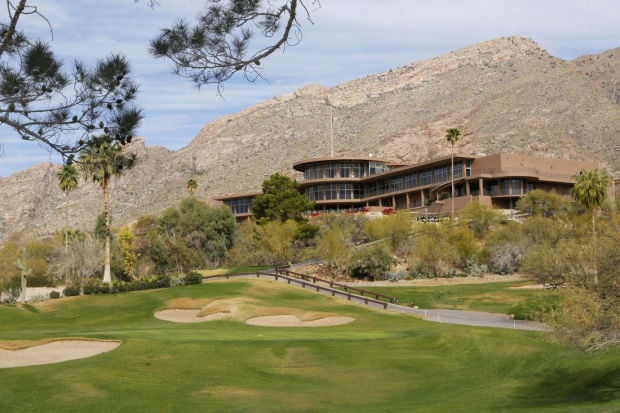A homeowner in Skyline Country Club Estates is suing her homeowners’ association for forcing its members to help the private club avoid foreclosure.
Magda Urban, a Skyline resident since 2001, is seeking an injunction to prevent Skyline Country Club Estates Improvement Association from charging her increased homeowners’ association fees to support Skyline Country Club. The association took part in a campaign last year to convince homeowners in the gated community — both those who are members of the country club and those who are not — to agree to higher association fees. Those funds went toward hiring a third-party manager to save the ailing country club.
Through her attorney, Urban declined to comment on the lawsuit, filed in Pima County Superior Court. But attorney Roger Wood says the main question is whether the association had the authority to increase fees to benefit a private club.
“You’re going to ask a group of (home)owners to essentially become private country club owners,” Wood said. “That’s not what the HOA was originally developed to do. I think any kind of change you would make to the fundamental purpose of the association would require everybody’s 100 percent approval.”
In December, a majority of homeowners voted in favor of a proposal to save the club by using association fees to hire a third-party manager. Supporters said the plan would protect property values — which some said would be at risk if the club foreclosed and sat vacant — and give perks to non-club members, like free monthly dinners and one day a month of free tennis.
The complaint says homeowners who are now financially supporting the club do not automatically become club members under the plan, “as might be expected when the association is financially rescuing the club.”
Bob Friesen, president of the homeowners’ association, declined to discuss details of the complaint. He said he wasn’t aware of it until he was notified by the Star and he hasn’t read the complaint.
The complaint states that the association’s rules don’t allow for the kind of broad action homeowners voted to approve in December. A mandatory increase in fees to benefit a third party would only be legal if an amendment to the homeowners’ association governing documents — known as CC&Rs — empowered the association to levy fees for that purpose, the complaint argues.
There’s little case law on this topic, Wood said. But a 2010 case, Dreamland Villa Community Club Inc. v. Raimey, established that such an amendment could only be approved by a unanimous vote of homeowners.
“At the very least, something should have been done to bring the CC&Rs into compliance with the purpose they are now raising money for. That purpose was never contemplated by the original drafters of the association’s” governing documents, Wood said.
The club’s new third-party manager, Arnold Palmer Golf Management, insisted upon the participation of all homeowners as a condition of managing the club.
A 25-year contract — which pays the management firm $164,731 in the first year, rising to nearly $600,000 in Year 3 — required that homeowners’ annual fees increase by 20 percent each year for three years and remain at the heightened level for the following 22 years.
Urban’s annual fees would increase from $1,575 to $2,722 by Year 3, Wood says.
Skyline Country Club has operated at a loss since 2007, largely because of declining membership. The club defaulted on its $3.5 million loan with Northern Trust Bank last year and was at risk of foreclosure, according to documents obtained by the Arizona Daily Star.
Skyline Country Club had 575 members in early 2013, compared with 787 in 2006, according to a PowerPoint presentation shown to Skyline Country Club Estates homeowners during a town-hall meeting last year. In the first 10 months of fiscal year 2013, the club had a net loss of $357,000, compared with a gain of $345,000 seven years prior.
Urban is seeking a ruling to stop the association from increasing her dues to support the private golf club, as well as damages to be determined at trial and attorneys’ fees. The new HOA fees went into effect in April and Urban paid them, but under protest, Wood said.
“We didn’t want this case to be about her not paying,” he said. “We wanted it to be about the substantive legal issues.”





